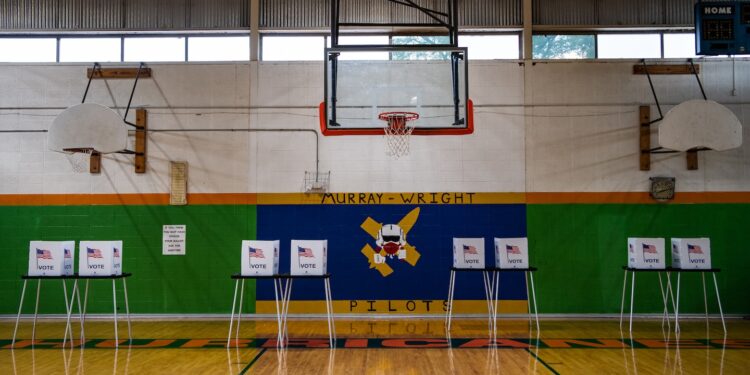Except that there is good news for Biden supporters, too. In Florida, a state Biden lost by 10 points in 2020, he now trails Trump by only five. And that’s in a poll with a margin of error of plus or minus three percentage points. If Florida tilts blue, seems like it might augur a good night for Democrats on Nov. 5.
The usual caveats apply here, as do some unusual ones. It’s still early and lots can change. The polls (which, despite the sponsoring cable-channel’s politics, have a deserved reputation for fairness) offer the same assessment that national polling does and has and will: The race is close and it’s hard to say much beyond that. You’d rather be Trump — leading in three and tied in one — than Biden, but it’s not like this thing is over.
What’s particularly interesting about the polls, though, is how they capture the breadth of skepticism within each candidate’s base of support. We’ve seen repeatedly that many of those planning to vote for Biden or Trump are doing so less because of enthusiasm for their candidate and more out of opposition to the other one. The state-level polling from Fox offers a different lens into that.
For example: The polls asked about support for president both including independent candidate Robert F. Kennedy and if the choice was solely between Biden and Trump.
Overall, Kennedy picked up between 7 and 9 percent of the vote. And that held true among those who picked Biden and Trump in the one-on-one matchup: Kennedy got between 6 and 10 percent of support from voters who picked Biden or Trump when Kennedy wasn’t an option. In Arizona, for example, Biden was the choice of 46 percent of respondents when pitted directly against Trump. With Kennedy in the mix, though, 7 percent of that 46 percent (about 3 percent of respondents) opted for the independent.
For example: Fox News asked respondents if they viewed Biden and Trump favorably or unfavorably. Between 7 and 15 percent of those who picked Biden or Trump in the head-to-head matchup said that they viewed their preferred candidate unfavorably. Some of them might be the same ones who opted for Kennedy, but in each state and for each candidate, more people viewed their own candidate negatively than said they’d vote for Kennedy when he was an option.
Some of the candidates’ supporters, in other words, simply don’t really like the candidate they plan to vote for. The numbers aren’t huge and the pattern isn’t surprising. But it is noteworthy.
There’s another aspect of the polls that deserves attention. Fox News’s pollsters included questions about statewide ballot initiatives that could affirm access to abortion in Arizona, Florida and Nevada. In each state, they found that at least two-thirds of respondents supported the abortion-access side of the initiative.
In each state, they also found that a majority of Trump voters supported abortion access.
The string of successes seen by organizations for abortion access since Roe v. Wade was overturned has been cited as a point of optimism for the left. But there has not been a test of the effects of an abortion initiative in a high-turnout election. In other words, it’s fair to assume that some significant part of the success of abortion-access initiatives is a function of motivated voters coming out to defend access against less-motivated, lower-turnout opponents. So what happens if both sides are already motivated to turn out?
This data also reinforces that many voters don’t see a conflict between supporting access to abortion and supporting Trump, the candidate who is directly responsible for Roe’s fall.
The election is five months out and there will be a lot more polling on both those initiatives and the presidential landscape. The most important takeaways of these new polls, then, are twofold.
First, that many supporters of the major-party candidates don’t love the major-party candidates.
Second, that despite that — or because of it — the races in each state are awfully close.







